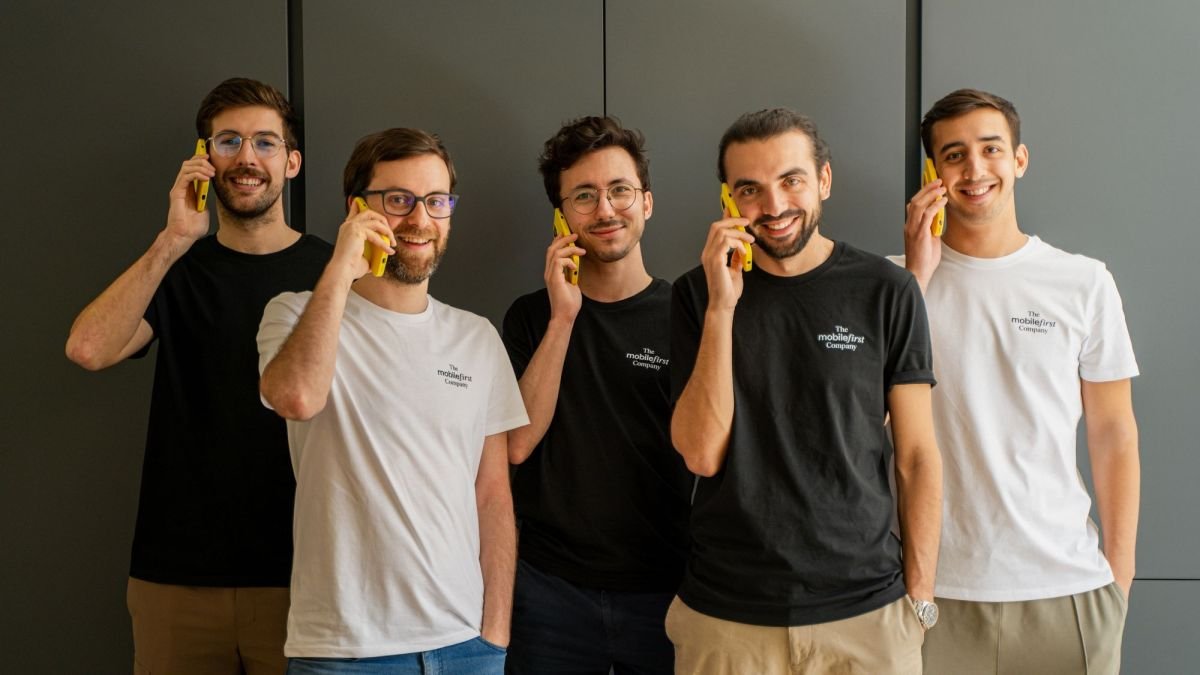Have you ever noticed the stark contrast between consumer apps and business apps on your phone? While consumer apps boast beautiful designs and user-friendly interfaces, business apps are often clunky and difficult to navigate.
A European startup is on a mission to bridge this gap by developing a suite of B2B apps that are designed specifically for mobile devices. In a world where smartphones have become the main computer for many people, this company is aptly named The Mobile-First Company.
When you download an app from this company, you can expect a seamless experience that allows you to create an account directly from your phone – a feature that is not always available with other B2B apps. The Mobile-First Company’s goal is to enable users to perform all necessary tasks from the convenience of their pocket-sized device.
Unlike other companies that offer B2B tools and treat mobile apps as mere companions or second-class citizens, The Mobile-First Company prioritizes the mobile experience. They aim to address the needs of small and medium businesses by providing one well-designed app at a time. Instead of attempting to recreate already existing enterprise software on mobile devices, they focus on creating highly effective and specialized apps for specific business needs.
According to co-founder and CEO Jérémy Goillot, the company’s vision is to “build a suite of applications. It will not be an all-in-one app and that will be the main difference with other players.” They recognize that the all-in-one model can be intimidating for some users and believe in providing tailored solutions for specific problems.
The Mobile-First Company has many promising ideas in the pipeline. For example, they plan to create an app for creating quotes, another for tracking expenses, and even a dedicated app for managing inventory in workshops or small warehouses.
“The idea is really to build a suite of applications. We don’t believe in the all-in-one model because people are scared of technology.”
Co-founder and CTO Ignacio Siel Brunet previously worked with a fintech infrastructure company in Latin America. With his experience in large companies, he understands the needs and pain points of B2B apps but has also witnessed how they often fall short when it comes to serving the needs of small businesses. He explains, “I know how to help big companies solve big problems. But on the other side I had this problem with my family. They own a furniture company but they have issues with invoicing, inventory, etc.” Siel Brunet’s personal experience with small businesses fuels his motivation to create effective solutions for this market.
Many small businesses resort to using consumer apps to fulfill their needs. As Goillot puts it, “They use Instagram as the showcase, WhatsApp as the CRM, a personal bank to run their financial aspects.” The Mobile-First Company’s goal is to create B2C style apps that combine user-friendliness and appeal with efficient problem-solving capabilities.
Their first app, Amoa, focuses on inventory tracking – a common challenge for many small businesses. For example, when working in a garage, workers often use spreadsheets to keep track of spare parts inventory. However, this can be time-consuming and cumbersome. With Amoa, workers can simply scan a barcode and add relevant information such as pricing details to the app. This allows for real-time tracking and eliminates the need to be constantly in front of a computer.
Additionally, Amoa can be useful in industries beyond just sales. For instance, a wedding photographer could use the app to create an inventory of camera lenses and gear to ensure nothing is left behind. Similarly, nurses could use Amoa to ensure they have all the necessary supplies before heading out to visit patients.
Like a mobile gaming company, The Mobile-First Company plans to quickly develop, test, and iterate ideas, discarding those that don’t work and focusing on the most promising ones. As CEO Jérémy Goillot explains, “We are a huge fan of Indian companies – Zoho is one of them. We are a huge fan of Treinta as well – it’s a Colombian company.”
After incorporating in December, The Mobile-First Company has already raised €3.5 million ($3.8 million at today’s exchange rate) in a pre-seed round led by Lightspeed Venture Partners and Emblem. Several notable angel investors have also contributed, including Xavier Niel (Kima Ventures), Thibaud Elzière (Hexa), Jean-Baptiste Hironde (MWM), and Rodolphe Ardant (Spendesk).
The company’s ultimate goal is to release six apps by the end of the year, constantly learning and improving along the way. With the ability to build an app within two weeks and generate thousands of downloads per day, The Mobile-First Company is determined to make a significant impact in the B2B app market. So keep an eye out – you may soon come across their app when chatting with a small business owner!








